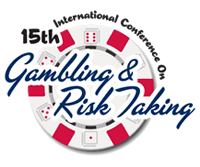Presentation Type
Event
Location
Caesars Palace, Las Vegas Pompeian III
Start Date
30-5-2013 4:00 PM
End Date
30-5-2013 5:30 PM
Disciplines
Gaming and Casino Operations Management | International Business | Mental and Social Health | Psychology
Abstract
I explore a unique, individual level, lottery betting panel data and show that lottery gambling is significantly affected by lottery winning history even though this winning history is shown to be merely an exogenous random shock. This panel data records lottery players’ collective lottery betting behaviors on a Chinese online lottery purchase website. This website lists each player’s lottery investment performance, the ratio between the lottery return and the lottery investment in the past three months, for lottery players’ reference and this ratio is shown to be an independent random shock across players. Based on the data with around 400,000 observations, I find that this random shock significantly affects lottery players’ purchasing behaviors. Specifically, collective lottery gamblers are significantly more likely to join a lottery package proposed by someone with a higher winning rate; lottery players are spending more money on the proposers with higher return rates.
Keywords
Gambling, Gambling Fallacy, Irrationality, Lottery Betting
Included in
Gaming and Casino Operations Management Commons, International Business Commons, Mental and Social Health Commons, Psychology Commons
Session 3-4-C: Are Lottery Players Affected by Random Shocks? Evidence from China’s Individual Lottery Betting Panel Data
Caesars Palace, Las Vegas Pompeian III
I explore a unique, individual level, lottery betting panel data and show that lottery gambling is significantly affected by lottery winning history even though this winning history is shown to be merely an exogenous random shock. This panel data records lottery players’ collective lottery betting behaviors on a Chinese online lottery purchase website. This website lists each player’s lottery investment performance, the ratio between the lottery return and the lottery investment in the past three months, for lottery players’ reference and this ratio is shown to be an independent random shock across players. Based on the data with around 400,000 observations, I find that this random shock significantly affects lottery players’ purchasing behaviors. Specifically, collective lottery gamblers are significantly more likely to join a lottery package proposed by someone with a higher winning rate; lottery players are spending more money on the proposers with higher return rates.


Comments
Moderator: Michael J.A. Wohl
Session 3-4-C Studying Patterns of Play: Specific Games
File: Paper